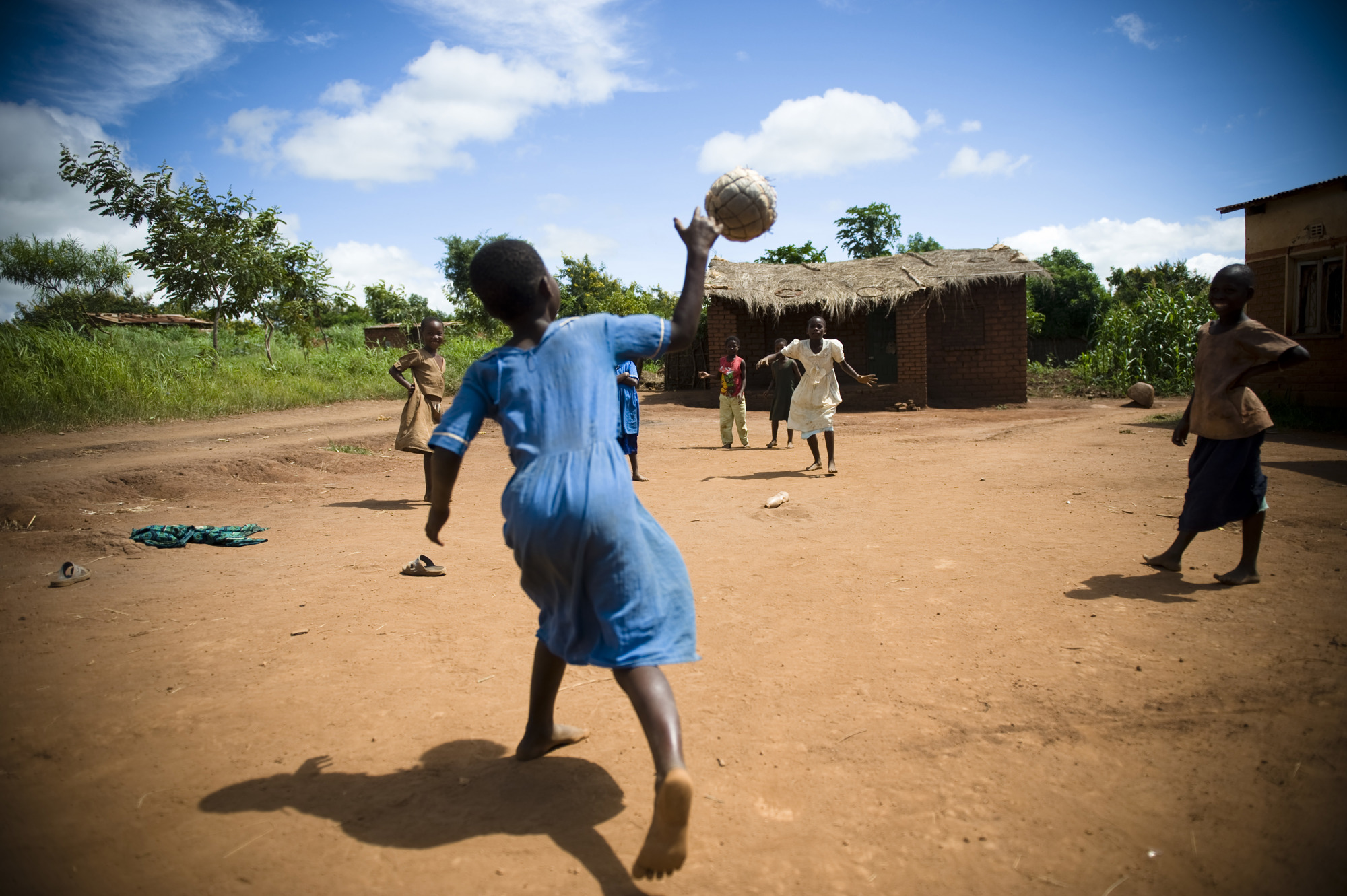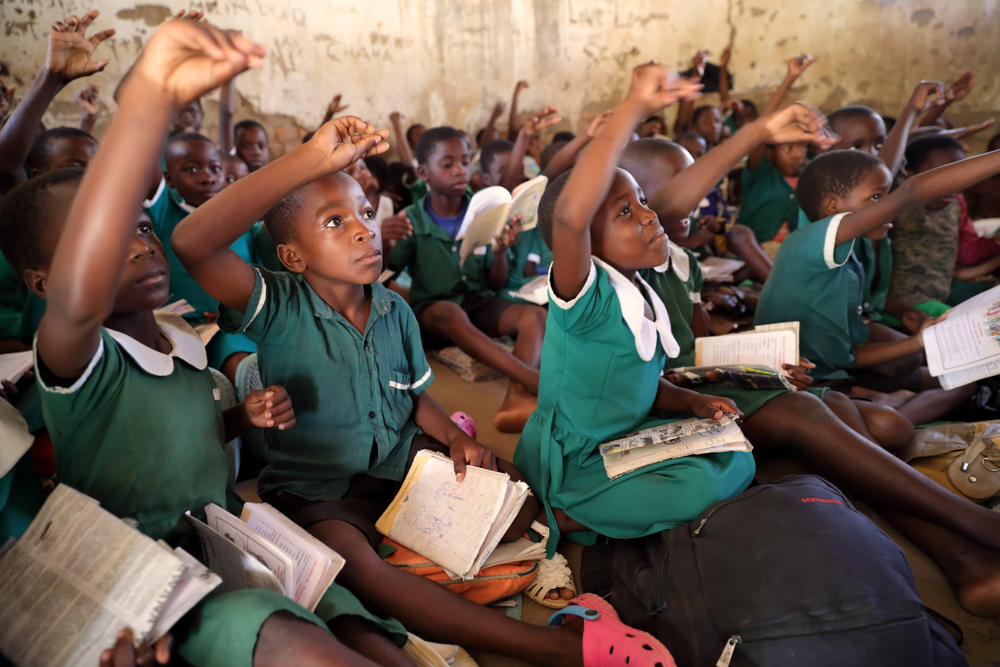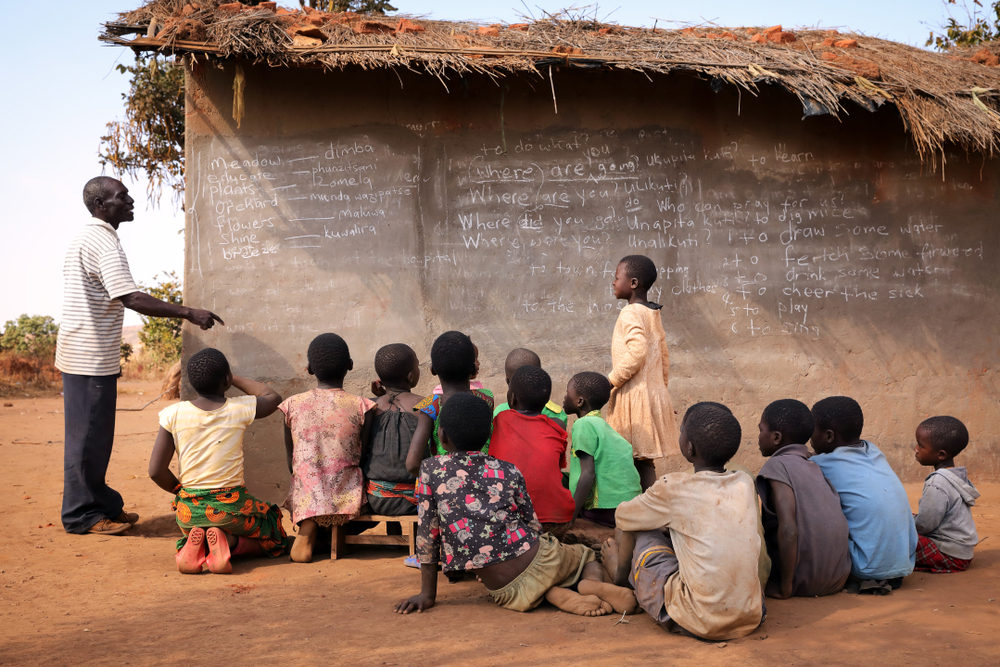Letting go
Marième Daff, executive director at Firelight, on re-defining trust in philanthropic relationships
Wednesday, 12 June 2024

Marième Daff, executive director at Firelight, on re-defining trust in philanthropic relationships
Wednesday, 12 June 2024

 Marième Daff is the executive director of Firelight, a multi-donor fund supporting community-driven systems change for children and youth in Africa. Marième has more than 20 years of experience in international development and philanthropy with a focus on women’s economic empowerment, social inclusion, and gender-sensitive programming, primarily in Africa. She holds degrees from the Sorbonne in Paris and New York University.
Marième Daff is the executive director of Firelight, a multi-donor fund supporting community-driven systems change for children and youth in Africa. Marième has more than 20 years of experience in international development and philanthropy with a focus on women’s economic empowerment, social inclusion, and gender-sensitive programming, primarily in Africa. She holds degrees from the Sorbonne in Paris and New York University.
Learning to ‘let go’ is probably one of the biggest challenges facing donors as they seek to make transition from traditional giving to the kind of philanthropy that empowers grantees and delivers systemic change. ‘Letting go’ is challenging because it is not simply achieving a deeper level of trust in the relationship with the communities that ultimately benefit from our money, it also involves questioning the idea (reinforced by the patriarchal relationships of the past) that trust itself is some kind of commodity that can be bestowed or withdrawn in philanthropic transactions.
More than that, it means abandoning the notion that we, as donors, should be responsible for determining the scale of success – rather than ‘trusting’ the grantee to deliver.
Passing power into the hands of grantees means that it is they, not us, who get to determine what success looks like.
These power shifts need to start from a place of deep-rooted understanding and acceptance that the knowledge is held by communities themselves – not traditionally trusted iNGOs or even other partners – and that they are the best people to identify and address challenges.
Starting from this place of knowledge, the question that we should ask potential grantees is not: “How can we trust you?” Rather, it should be: “How can we best support you to drive change in your community?”

Large numbers of girls in Malawi drop out of education after primary school due to family poverty. Firelight worked with a local NGO to identify pressure points and find ways to help girls graduate from high school. Photo: Shutterstock.
In 2017, Firelight, a small US-based multi-donor fund, launched a three-year research project to ask community-based organisations in the nine countries where we worked in Eastern and southern Africa for their views on how we could best support them to drive change in their communities.
One such grantee was Malawi’s Foundation for Community Livelihood and Development (FOCOLD), an NGO working to combat poor academic performance and high drop-out rates at secondary schools among adolescent girls.
Firelight had already been supporting FOCOLD for two years when we launched the research project so we suspected they would have particularly valuable contributions to make to our research findings and our understanding of how to strike the right balance in the funder/grantee relationship.
Working closely with community leaders, parents, and the girls themselves, FOCOLD discovered that family poverty was the root cause of school drop out amongst girls.
The solution, which the community designed together, involved FOCOLD temporarily paying families’ school fees and giving them loans while the daughters went back to school and parents took part in training designed to improve their income earning potential.
Over a period of two years or so, this community-led approach helped transform adolescent girls’ secondary school attendance, performance, and transition (in one district, Matindi, general pass rate trends increased from 23 percent to 53 percent over this period).
More importantly, it deepened the community’s engagement with the education system, leading to some girls going onto tertiary education (which hadn’t previously happened in these communities), and some families even spending their growing income on educational materials on other children from lower income households in their neighbourhoods.
These successes have been sustained over the years and belong to FOCOLD and the community in which it works.

It is important for donors to work closely with communities to understand their needs, rather than imposing external solutions that may not be a priority. Photo: Shutterstock
Our research also deepened our understanding of Firelight’s role and of the opportunities for change that are available when the funder is prepared to ‘let go’.
In this instance, we ‘let go’ by patiently funding FOCOLD over five years, giving it the freedom to learn and adapt different solutions. With our funding, the organisation was able to work with the adolescent girls and their families to identify access issues and come up with solutions.
We also created a community of practice to support the FOCOLD and delivered capacity building which, among other things, enabled staff to deepen their engagement with the community around them.
Lessons from grantees like FOCOLD show us that real, impactful, and lasting change happens when a community is supported and given the agency to shape, own, and drive change for itself.
They highlight the importance of a different kind of trust – the trust between a community and the community-based organisation that is working with them to deliver systemic change.
These lessons laid the foundations for what we have called ‘Community Driven Systems Change’ (CDSC). A radical shift from the traditional development paradigm, CDSC emphasises the importance of insight, leadership, and ownership of the people who are living and experiencing issues at the community level.
CDSC’s focus on addressing root causes and underlying systems means abandoning traditional grant-making approaches, which are often rigidly issue-based, short-term, and focused heavily on rapid, and scalable results (though measurement is still important).
It involves a reversal of the power dynamics that dominate traditional grant-making processes, passing power and resources to the community so it can identify the issues and ultimately define success on their own terms.
Yes, it means ‘letting go’ – but the phrase is misleading. ‘Letting go’ means donors moving on from traditional philanthropic relationships and notions of trust but it does not mean leaping into the unknown. In fact, it’s the very opposite.
CDSC is, after all, about handing control to the community and people who, more than anyone else in the world, know about the challenges in hand. It is they, not us, who are the experts here.
What’s more, if you have chosen the right partners in the first place, they won’t just bring unrivalled knowledge of the issues, they will bring the backing of local people who are ultimately needed to address the challenges at hand.
Firelight’s efforts to understand the needs of our own grantees resulted in our Community Driven Systems Change report, which contains valuable guidance for grantmakers looking to support community driven systems change.
"Real, impactful, and lasting change happens when a community is supported and given the agency to shape, own, and drive change for itself."
Marième Daff, executive director, Firelight
Immersing yourself in the kind of donor/grantee relationship that these seven steps demand takes time and hard work, and an ability to think differently.
For donors with limited capacity, there are other options. You can partner with local or intermediary grantmakers that share values true to CDSC and work together to ensure you balance the complex power dynamics between the three levels.
Balancing power between partners like this is a big part of why Community Driven Systems Change works, but this type of grantmaking is not just about doing the right thing.
For us, it is about recognising that the US$1m or so that we give out in grants and capacity building every year can inspire far deeper and more sustainable impact when there is true partnership between donor and grantee - and when power is where it belongs, in the community.
About Firelight
Since 1999, Firelight has worked to address key issues facing children in East and Southern Africa. Starting out as a private family foundation, it has since transitioned to a multi-donor fund, with a strong focus on shifting power to local organisations to develop locally-driven solutions that drive broader systems change. In its 25 years of operations, Firelight has disbursed more than 2,000 grants in over 12 African countries, impacting more than 1.6 million children, parents, caregivers, professionals, and community members.
It's a good idea to use a strong password that you're not using elsewhere.
Remember password? Login here
Our content is free but you need to subscribe to unlock full access to our site.
Already subscribed? Login here